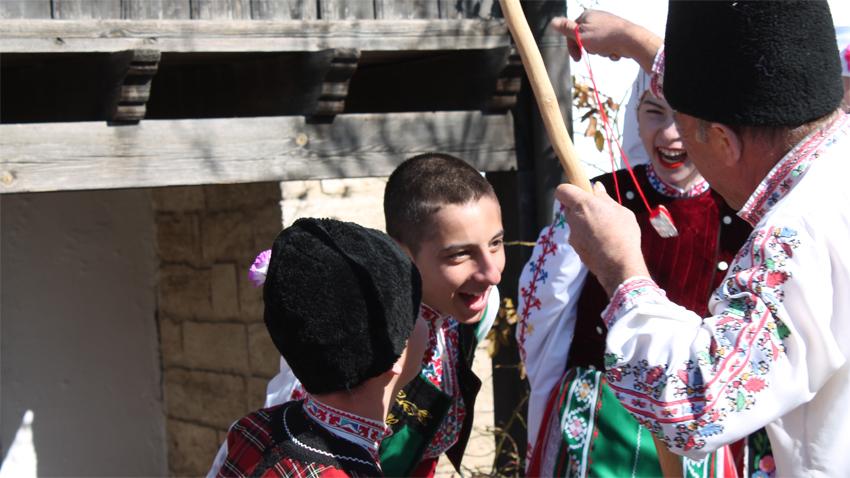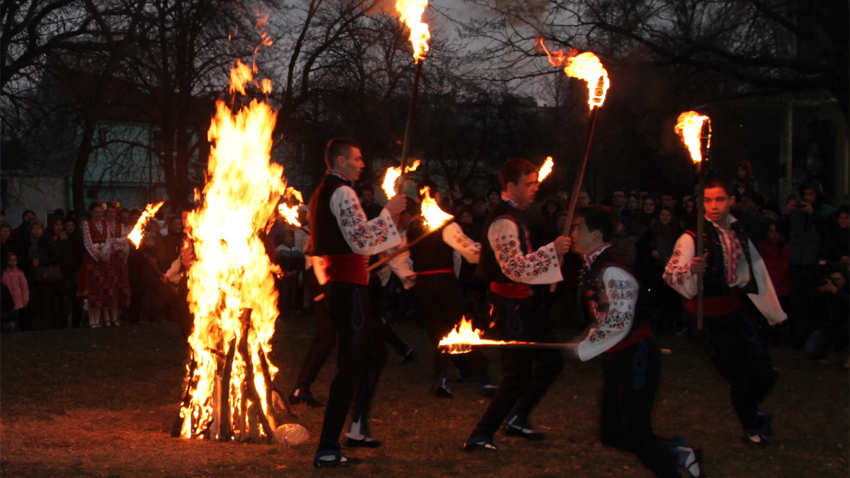Sirni Zagovezni or Cheesefare Sunday (Forgiveness Sunday) is the first Sunday before Lent, or seven weeks before Easter. In Bulgarian folklore it has other names too, such as Sirni Pokladi, Forgiveness, Orata and others. This is a day to ask family members and friends for forgiveness but also to forgive others for their mistakes.
In earlier timeс the custom of asking for and granting forgiveness was performed throughout the week between Meatfare Sunday and Cheesefare Sunday. Younger members of the community visited older ones; families paid visits to their best men. They bowed deeply asking for forgiveness and waiting for the answer “Be forgiven!” By tradition after the completion of these rituals the family sat beside the festively laid table. Various dishes were served to honour the occasion: like cheese pie and pasties made with butter, eggs and milk, products banned for consumption during Lent. This custom is preserved in many places and is performed, albeit in an up-to-date version.
Children have great fun, especially while they take part in the "biting" done after dinner.
A boiled egg or а white halva piece is tied with а red thread or martenitsa (intertwined white and red tassels) to hang from the ceiling. An ember is tied to the same thread, but a little bit higher. The oldest woman sways the thread, and everyone strives to catch the ember, egg or the halva, but only with their mouths without using their hands. The thread on which they are tied is kindled several times, to guess the chances of a good harvest, healthy domestic animals, marriage of the young etc. If the thread burns fast, it foretells success.
In some regions of Bulgaria the folk would light up an oratnik – a piece of wood split to a certain point and stuffed with straw in the opening. The folk would kindle the straw, spin the piece of wood and shout invocations.
Cheesefare Sunday is famed as a day when quite spicy songs and rhymes about the relationships between sweethearts in the village were allowed. In the past big fires were made with straw outside the village, usually on a hill. Boys jumped over them and girls played chain dances. On this evening, young sweethearts who had exchanged vows but had failed to get married in the winter, could part – until the autumn and the first working bee.

The custom of arrows (chilkane or tuykane) was also common on Cheesefare Sunday. Each boy prepared dozens of arrows with a pointed tip, vanes and with tar spread on them. So boys would aim those arrows at their sweethearts’ homes. That's why the parents of unmarried girls were preparing water-filled vessels all day long, and were covering roofs with wet canvas to “welcome” those burning declarations of love accordingly.
On the Monday after Cheesefare Sunday called Kukerovden (Mummer Day) in many regions of Bulgaria masked groups would come out for processions. These were lined up with unmarried young men dressed up in women’s clothes and also with married men.
Till this day the loud clang of their bells and their fearsome masks symbolize the purging power that can banish evil and reinstate goodness.